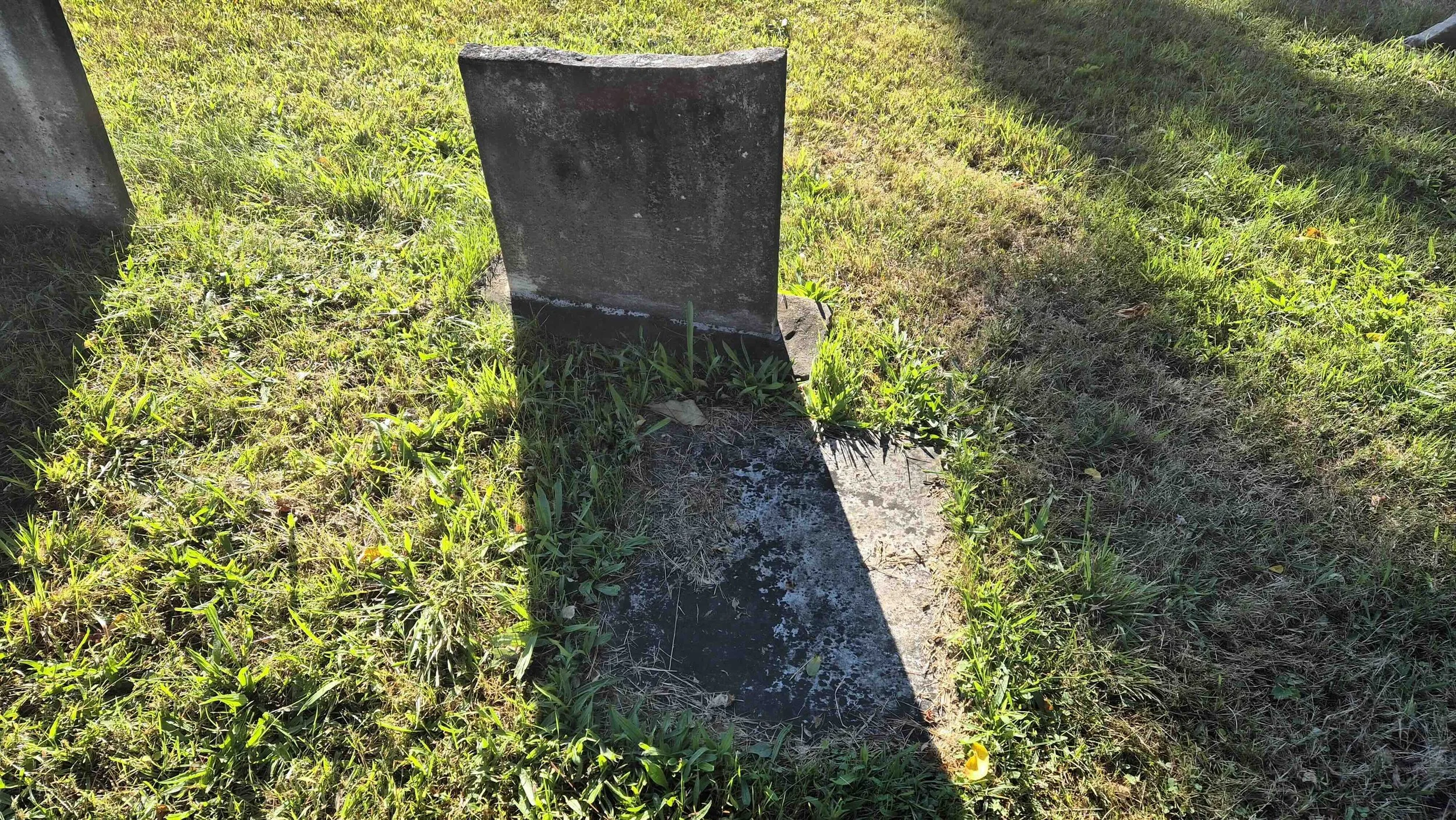Repairing the headstone of William Monteflora Harris
Born around 1783 in the West Indies, William Monteflora Harris moved to America in search of an education. Frustrated with the racism that limited his ability to achieve that goal, his focus turned towards ensuring his children received an education. In 1810, he married a woman named Sally Prentice in Norwich. His kids attended the African Sabbath School at 2nd Congregational Church, receiving some level of a limited, segregated education.
William became an agent for William Lloyd Garrison's newspaper, "The Liberator," as did his son, Charles. He owned land, as well as fought for suffrage for Black people, his position being how can he be taxed, yet he can't vote?
In 1832, William moved his family to Canterbury, where one of his daughters would become the impetus for a scandal well known today. His daughter asked Prudence Crandall if she would admit her into her school, saying, "Miss Crandall, I want to get a little more learning, enough if possible to teach colored children." That individual was Sarah Harris.
The context of Sarah's request is completely different when you consider the struggles of her father, his desire to gain access to education for himself, the continued struggle in his desire to provide an education for his children, and his limited success in his pursuit, only provided by a Sunday school class. Because of that, I believe the narrative of William Monteflora Harris should be intrinsically linked to the story of Sarah Harris and Prudence Crandall... the narrative not appropriately told without it.
Yesterday, I visited the gravesite of William Monteflora Harris. I was incredibly disappointed in what I discovered. I'm now raising funds to repair it. I've set up a dedicated link for raising the required funds. You can support our effort here.
If interested, you can see my visit to the gravesite of William Monteflora Harris using the below YouTube link.
Thank you and God Bless.
John


